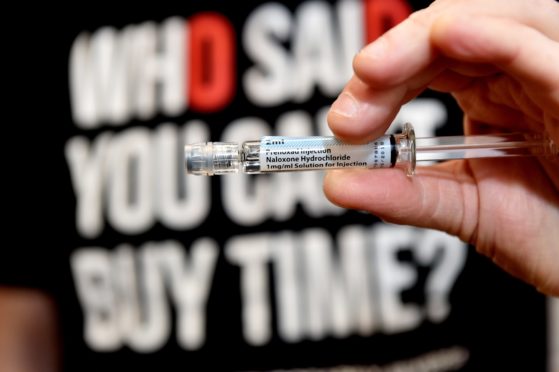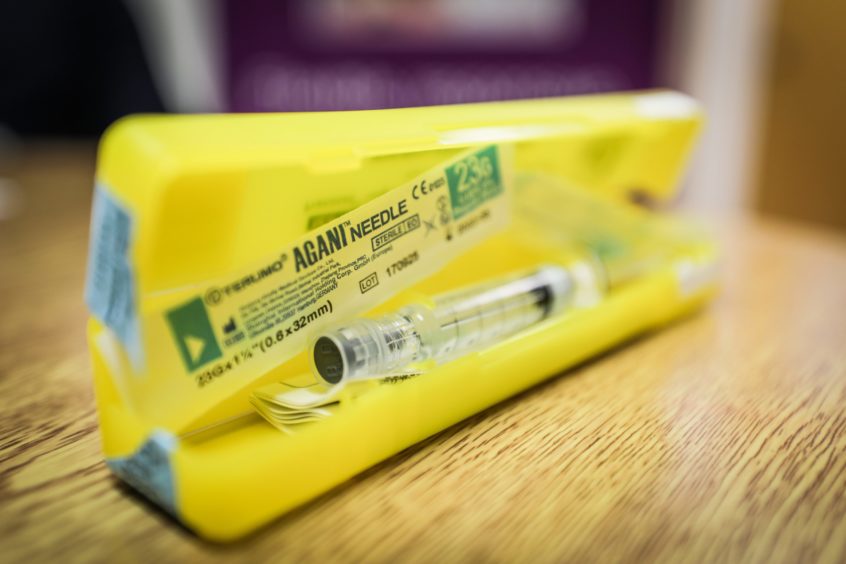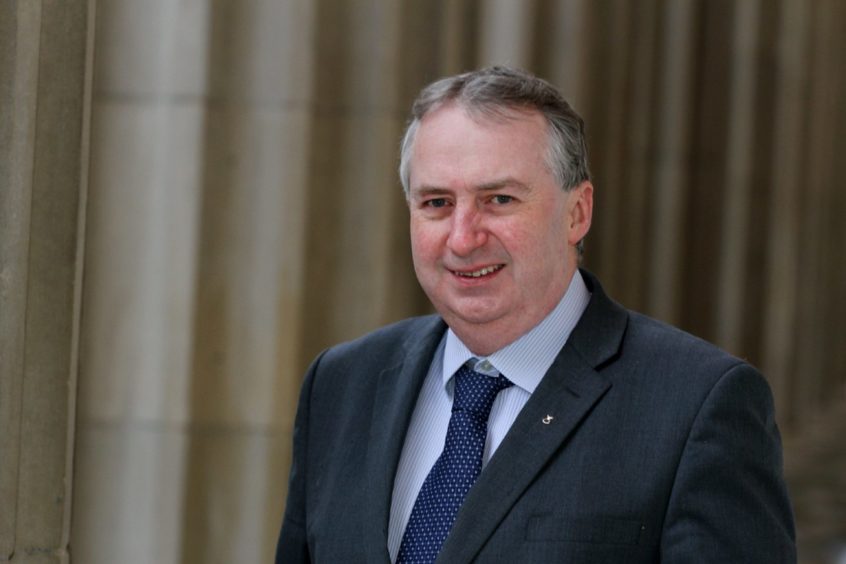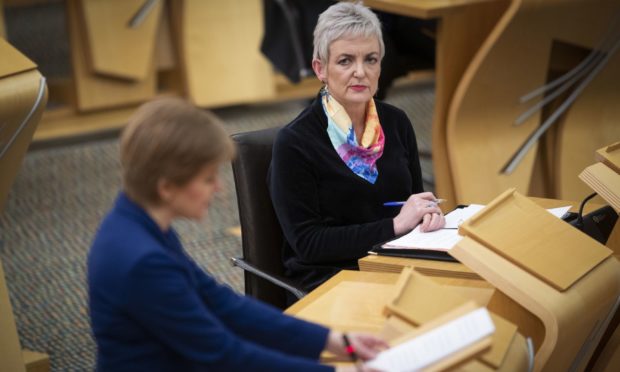A Dundee councillor has pledged to take training to use an overdose reversal drug after the launch of a new awareness campaign.
A nationwide campaign to raise awareness of the signs of a drug overdose and the life-saving medication naloxone has been launched to mark International Overdose Awareness Day.
The Scottish Government and Scottish Drugs Forum (SDF) have teamed up to help inform the public of the medication, which can reverse the effects of an opioid-related overdose.
Councillor Ken Lynn, chairman of Dundee Health and Social Care Partnership, welcomed the new campaign.
He said he will take the training in how to spot an overdose and use the lifesaving drug, offered as part of the Stop the Deaths campaign.
Naloxone reverses opioid overdoses which can stop a person from breathing, allowing time for the emergency services to arrive.
TV and radio adverts and billboards at transport hubs and shopping centres will encourage people to go to the StopTheDeaths website.
They will be able to learn how to identify when someone is experiencing an overdose, how to get a naloxone kit and be trained to use it.
It comes amid an increasing number of drugs deaths in Scotland, with recent figures showing 1,339 people died from drugs in 2020 – the highest death rate in Europe.
Welcoming the campaign, Mr Lynn said he is pleased to see the campaign and the promotion of the Stop the Deaths website.
He said: “It means that people will be much more aware of naloxone, its purpose and of course, how to use it.
“More importantly the Stop the Deaths campaign will allow anyone to complete the online training and request a free potentially lifesaving supply of Naloxone.
“This is potentially a game-changer and I’m pleased to see so much publicity being devoted to it on TV, radio and on billboards.”
I intend to complete the training and get my own supply as soon as possible
He added: “I’m pleased to see the Scottish Government teaming up with the Scottish Drugs Forum , who are experts in the field and hope that as many people as possible will visit the website and do their bit to save lives.
“It’s particularly important in Dundee with our tragic history of drug deaths and I intend to complete the training and get my own supply as soon as possible.”
Announcing the new campaign, Drugs Policy Minister Angela Constance said she is determined the £250 million budget set to tackle Scotland’s drugs deaths crisis will make a difference.
She said: “Firstly, on International Overdose Awareness Day I want to pass on my sincere condolences to all those who have been affected by a drug-related death.
“As I have said before, the number of deaths in Scotland is heart-breaking and I am determined that every penny of the £250 million we will spend on the crisis over the next five years will make a difference.
“That is why I am pleased to launch this joint campaign with Scottish Drugs Forum to encourage the public to get involved in our national mission and equip themselves to save a life.
“It will help inform a wider audience of what naloxone is, how it works and how they can use it in an emergency.”

Ms Constance added: “We hope the campaign will also help reduce the stigmatisation of people at risk of overdose and people with a drug problem more broadly.
“Naloxone is one of a wide range of measures being used to address the public health emergency of drugs deaths, but it plays an important role and I hope as many people as possible will visit the “Stop The Deaths” website to find out more.”
Kirsten Horsburgh, strategy coordinator for drug death prevention at the Scottish Drugs Forum, said: “People can feel overwhelmed and powerless in the face of the numbers of overdose deaths in Scotland but these deaths are preventable.
“Even in the moment that people encounter someone who may be experiencing an overdose it is important that people do not feel helpless. With a little knowledge and training people can make a life-saving difference.#
“In the time people wait for an ambulance the first steps can be made that can save that person’s life.
“Recognising that someone may be experiencing an overdose, dialling 999 and administering naloxone are all part of the response that gives that person the best chance of recovery.
“In Scotland there is widespread access to naloxone kits and training and it’s crucial that as many people as possible get involved.”


